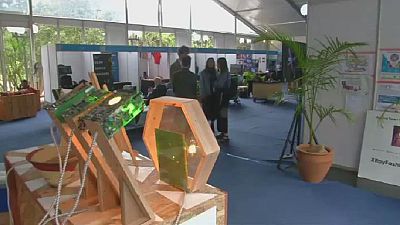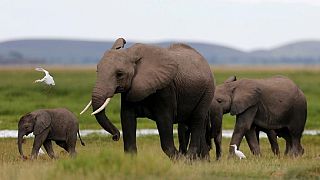United Nations
A United Nations Environment Assembly meeting being held in Nairobi this week is considering whether to start assessing, and setting rules on, technologies that could pull carbon out of the atmosphere or block some of the sun’s warmth to cool the Earth.
Delegates have been debating a proposal from Switzerland, backed by 10 other countries, to begin examining geo-engineering technologies, which backers say could help fend off the worst impacts of runaway climate change.
If adopted, the proposal could lead to the highest-level examination yet of the controversial technologies, which have gained prominence as efforts to curb greenhouse gas emissions fall short.
“This UN Environment Assembly has decided to take on the most pressing environmental challenges in generations, steadily committed united and determined to seek a sustainable path for future generations. This is the moment and time that will define us, we have the scientific evidence, we have the policies now it’s time for action,” said UN Environment Assembly president, Siim Kiisler in an address to delegates.
Opponents say the technologies present huge potential risks to people and nature, and could undermine efforts to cut emissions, not least because many are backed by fossil-fuel interests.
Businesses that make products which promote sustainable development were invited to showcase their innovations and join in discussions away from the main hall.
Achenyo Idachaba Obaro runs an organization that trains communities in Nigeria to make diverse goods from hyacinth.
Water hyacinth has choked off large parts of water bodies on the continent, including Lake Victoria, a fresh water lake that straddles Kenya, Uganda and Tanzania. Environmentalists have been raising the alarm about its rampant spread for decades.
“Of course the environment is key to any and everything that we do. For us as an enterprise and what we do, we have a global problem on our hands water hyacinth is not just a Nigerian problem it’s not a Kenyan problem we have 50 plus countries in tropical and sub tropical zones that are affected by water hyacinth at this stage, and I think this is a good platform to showcase that you know the same way we look at things there is a hash tag clean seas, there should be hash tag water hyacinth transformed. Whereby there is a consulted effort to look how we can actually transform this renewable resource into beneficial use on a scalable platform,” said Obaro.
Environmentalists are pushing for rapid slashing of emissions through use of greener power, preserving forests and similar measures to promote sustainable development and combat global warming.
Newton Owino, a Kenyan who makes leather products from fish skin also exhibited his work at the conference’s exhibition space.
Owino says he started his business after realizing that fish factories were polluting the environment with waste that he could process.
“Though I would wish that we could have more and more people coming up, to innovate based — to come up with innovations based on the water resources, actually this would help us promote the conservation activities along the water bodies. Like for example right now am doing the fish skin now those who are killing the reptiles like crocodiles for skin can now have an alternative and this a way of conserving actually the marine ecosystem,” said Owino.
Global exploitation of natural resources – from water, sand and timber to oil, coal and gemstones – has more than tripled in 50 years, the United Nations said on Tuesday (March 12) warning of devastating environmental impacts unless demand is reduced.
Surging consumption of natural resources – 92 billion tonnes in 2017 – accounts for half of the world’s planet-heating greenhouse gas emissions and over 90 percent of the world’s biodiversity loss, the Global Resources Outlook 2019 found.
If resource use doubles by 2060, as predicted based on current trends, a further 10 percent of forests and 20 percent of habitats, such as grasslands, will disappear, it said.
“We have had commitments from parties, from multi lateral organizations including the World Bank committing to work with countries like Kenya and other African countries who are badly impacted by climate change. And I think that’s a positive step in the right direction, and if other friendly countries and multinational institutions can take similar steps that would help in addressing the urgent need of mitigating and adapting to the impact of climate change,” said Blama Nathenian, a delegate at the conference.
Experts warn that without more responsible, efficient natural resource management, achieving global targets on climate change like the Paris Agreement and or Sustainable Development Goals (SDGs) on protecting biodiversity will be difficult.
Reuters














Go to video
United Nations plane lands at Khartoum airport for first time since war began
00:01
Ethiopian peacekeepers in South Sudan awarded United Nations Medal
01:17
South Sudan: UN Aid Chief sounds alarm on humanitarian situation
00:27
Somaliland looks to Israel for help with water crisis
02:20
'Everything was removed': Gambians share pain with FGM ban in balance
01:14
UN calls on both authorities in Libya to protect rights of migrants